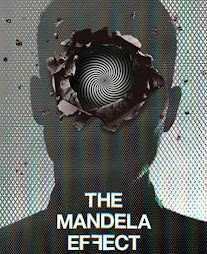The Mandela Effect
False Memory is a phenomenon where a person recalls something that did not happen or recalls it differently from the way it happened.
In 2010, this shared false memory phenomenon was dubbed as the ‘Mandela Effect’ when Fiona Broome claimed that she and a thousand other people had a false memory of the death of Nelson Mandela. He actually died in 2013.
Theories surrounding this theory:
1. Strength Hypothesis - it states that during powerful situations people are expected to demonstrate rational behaviour. Most people, no matter how daring will adhere to the laws of the land in order to gain protection and security.
2. Construction Hypothesis - this claims that if a true piece of information can alter a respondent’s answer, then so can a false piece of information. Upon asking a respondent a question that provides a presupposition, the respondent will provide a recall in accordance with the presupposition.
3. Skeleton Theory - the procedure in which a memory that is recalled can itself alter the memory. Firstly, one selects a stimulus to focus on. Secondly, one might translate visual perceptions into sentences. Thirdly, while retrieving the memory one can either use imagery or link the chosen sentence to what was observed. This retrieval process results in either an accurate memory or a false memory.
Factors and Psychiatry of the Mandela Effect:
● Individual differences - Superior creative imagination and dissociation are known to be attached to false memory formation. Creative imagination may lead to almost realistic details of imagined events. Social desirability and false memories have also been examined.
● Trauma - A history of trauma is relevant to the issue of false memory. It has been proposed that people with a trauma history or trauma symptoms may be particularly vulnerable to memory deficits.
● Sleep deprivation - Sleep deprivation can also affect the possibility of falsely encoding a memory. In two experiments, participants studied DRM lists (lists of words [e.g., bed, rest, awake, tired] that are associated with a non-presented word) before a night of either sleep or sleep deprivation; testing took place the following day. One study showed higher rates of false identification in sleep-deprived participants, compared with rested participants.
● False memory syndrome - False memory syndrome recognizes false memory as a dominant part of one's life in which it affects the person's mentality and everyday life. False memory syndrome differs from false memory in that the syndrome is heavily influential in the direction of a person's life, while false memory can occur without this significant effect. The syndrome takes effect because the person believes the influential memory to be true.
● Children - False memory also victims children. If a child experiences abuse, it is not typical for them to disclose the details
of the event when confronted in an open-ended manner. The stress put on the child can make recovering an accurate memory more difficult. Children that have never been abused but undergo similar response-eliciting techniques can disclose events that never occurred.
● Potential benefits - Several possible benefits associated with false memory arrive from fuzzy-trace theory and gist memory. Other positive traits associated with false memory indicate that individuals have superior organizational processes, heightened creativity, and prime solutions for insight-based problems. False memories tied to familiar concepts can also potentially aid in future problem-solving in a related topic, especially when related to survival.
The Mandela effect is an unusual happening where a large group of people recollect an event unlike it happened. Some conspiracy theorists accept that the Mandela effect is the evidence of an alternate universe while the doctors utilize it to be an illustration of how tricky the human brain can be.




Comments
Post a Comment